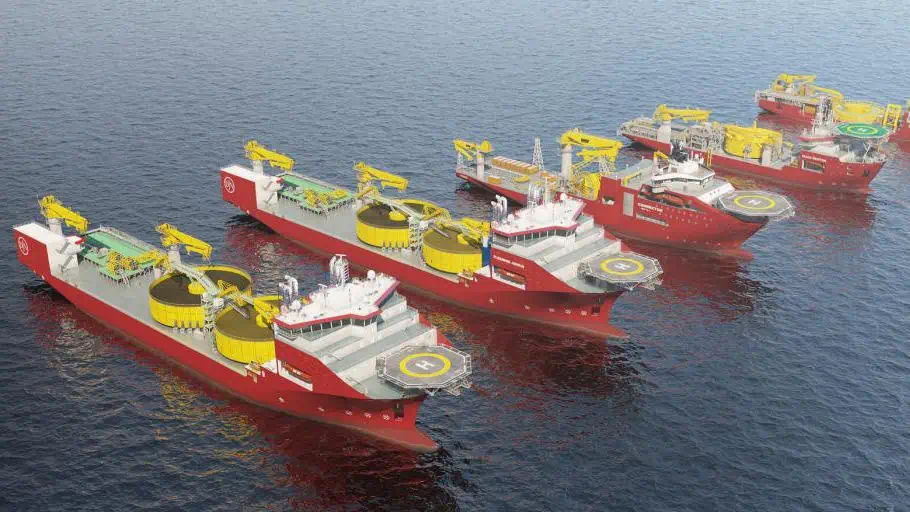Connecting Ireland with Wales, Crete with mainland Greece, the Orkney islands with mainland Scotland: these are just some of the subsea connections on Jan De Nul Group’s record. These connections, via submarine cables, bring energy from offshore wind farms to land or to connect countries’ electricity grids. To further support that transition, we are ordering another XL cable-laying vessel, identical to the Fleeming Jenkin, which will be delivered in 2026 and has already been booked for its first projects.
We are thus making another major investment in the transition to renewable energy. The new XL ship will be the fifth vessel in Jan De Nul Group’s cable-laying fleet. That fleet has installed 2,500 kilometres of submarine cables in 25 countries over the past decade. They connected Crete to mainland Greece, for example, so that the island no longer has to rely on diesel generators to generate electricity. Those cables span a length of 135 kilometres and are located at depths of up to 1,000 metres with a – to put it mildly – bitterly rough and challenging seabed.
Other high-profile project: the installation of 1,000 kilometres (1,000!) of cables to connect two islands off the coast of Abu Dhabi to the mainland. Currently, the group is also working on the Greenlink interconnector, linking the electricity grids of Ireland and Wales. And a further 2,500 kilometres of cable routes are booked in the order book for the next few years. This immediately explains why Jan De Nul Group decided to order a new XL cable-laying vessel.
Jan Van de Velde, Director New Building, Jan De Nul Group: “We are and remain a big believer in the transition to renewable energy. With this second XL cable-laying vessel, we continue to reinforce our pioneering role. Both vessels combine all the cable installation expertise we have built up over the past decade. The result are vessels that operate very efficiently and have a much smaller carbon footprint.”












